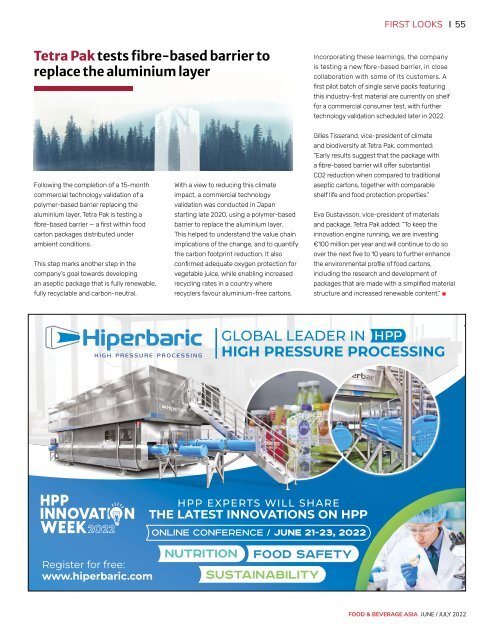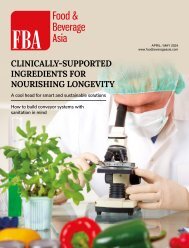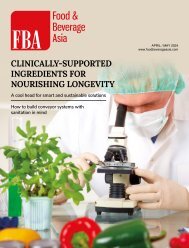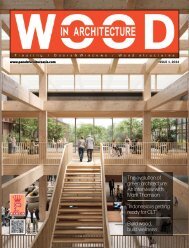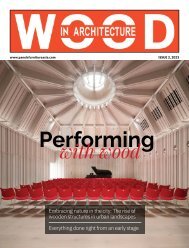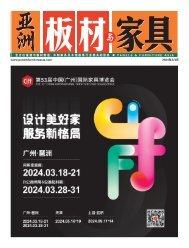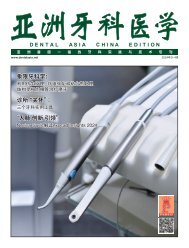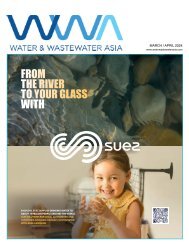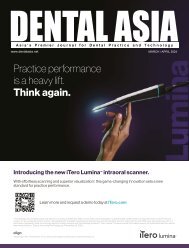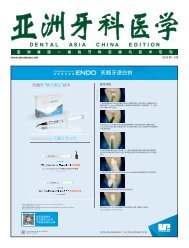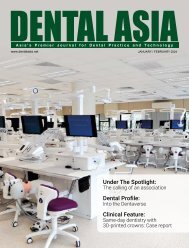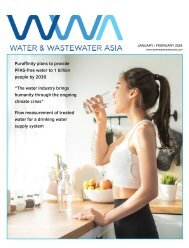Food & Beverage Asia June/July 2022
Food & Beverage Asia (FBA) is the leading source of food and beverage news in Asia since 2002. FBA delivers a comprehensive view of the food and beverage landscape, spanning across the latest health and nutrition trends and industry innovations in ingredients, recipe formulations, food science, sustainability, packaging, and automation, as well as advancements in agri and food-tech.
Food & Beverage Asia (FBA) is the leading source of food and beverage news in Asia since 2002. FBA delivers a comprehensive view of the food and beverage landscape, spanning across the latest health and nutrition trends and industry innovations in ingredients, recipe formulations, food science, sustainability, packaging, and automation, as well as advancements in agri and food-tech.
You also want an ePaper? Increase the reach of your titles
YUMPU automatically turns print PDFs into web optimized ePapers that Google loves.
FIRST LOOKS 55<br />
Tetra Pak tests fibre-based barrier to<br />
replace the aluminium layer<br />
Incorporating these learnings, the company<br />
is testing a new fibre-based barrier, in close<br />
collaboration with some of its customers. A<br />
first pilot batch of single serve packs featuring<br />
this industry-first material are currently on shelf<br />
for a commercial consumer test, with further<br />
technology validation scheduled later in <strong>2022</strong>.<br />
Following the completion of a 15-month<br />
commercial technology validation of a<br />
polymer-based barrier replacing the<br />
aluminium layer, Tetra Pak is testing a<br />
fibre-based barrier — a first within food<br />
carton packages distributed under<br />
ambient conditions.<br />
This step marks another step in the<br />
company’s goal towards developing<br />
an aseptic package that is fully renewable,<br />
fully recyclable and carbon-neutral.<br />
With a view to reducing this climate<br />
impact, a commercial technology<br />
validation was conducted in Japan<br />
starting late 2020, using a polymer-based<br />
barrier to replace the aluminium layer.<br />
This helped to understand the value chain<br />
implications of the change, and to quantify<br />
the carbon footprint reduction. It also<br />
confirmed adequate oxygen protection for<br />
vegetable juice, while enabling increased<br />
recycling rates in a country where<br />
recyclers favour aluminium-free cartons.<br />
Gilles Tisserand, vice-president of climate<br />
and biodiversity at Tetra Pak, commented:<br />
“Early results suggest that the package with<br />
a fibre-based barrier will offer substantial<br />
CO2 reduction when compared to traditional<br />
aseptic cartons, together with comparable<br />
shelf life and food protection properties.”<br />
Eva Gustavsson, vice-president of materials<br />
and package, Tetra Pak added: “To keep the<br />
innovation engine running, we are investing<br />
€100 million per year and will continue to do so<br />
over the next five to 10 years to further enhance<br />
the environmental profile of food cartons,<br />
including the research and development of<br />
packages that are made with a simplified material<br />
structure and increased renewable content.” ■<br />
GLOBAL LEADER IN<br />
HIGH PRESSURE PROCESSING<br />
C<br />
M<br />
Y<br />
CM<br />
MY<br />
CY<br />
CMY<br />
K<br />
HPP EXPERTS WILL SHARE<br />
THE LATEST INNOVATIONS ON HPP<br />
ONLINE CONFERENCE / JUNE 21-23, <strong>2022</strong><br />
Register for free:<br />
www.hiperbaric.com<br />
NUTRITION FOOD SAFETY<br />
SUSTAINABILITY<br />
FOOD & BEVERAGE ASIA JUNE / JULY <strong>2022</strong>


